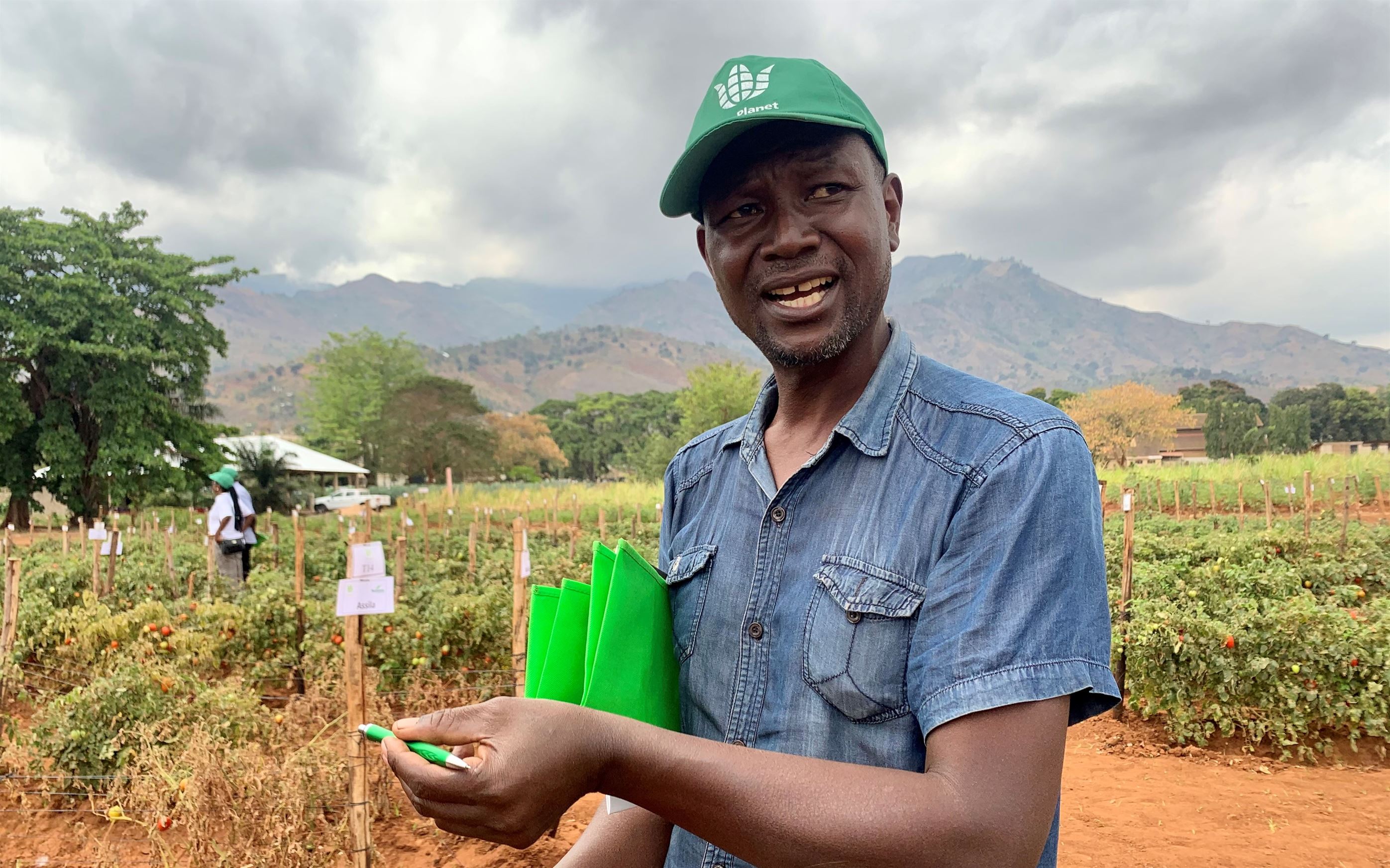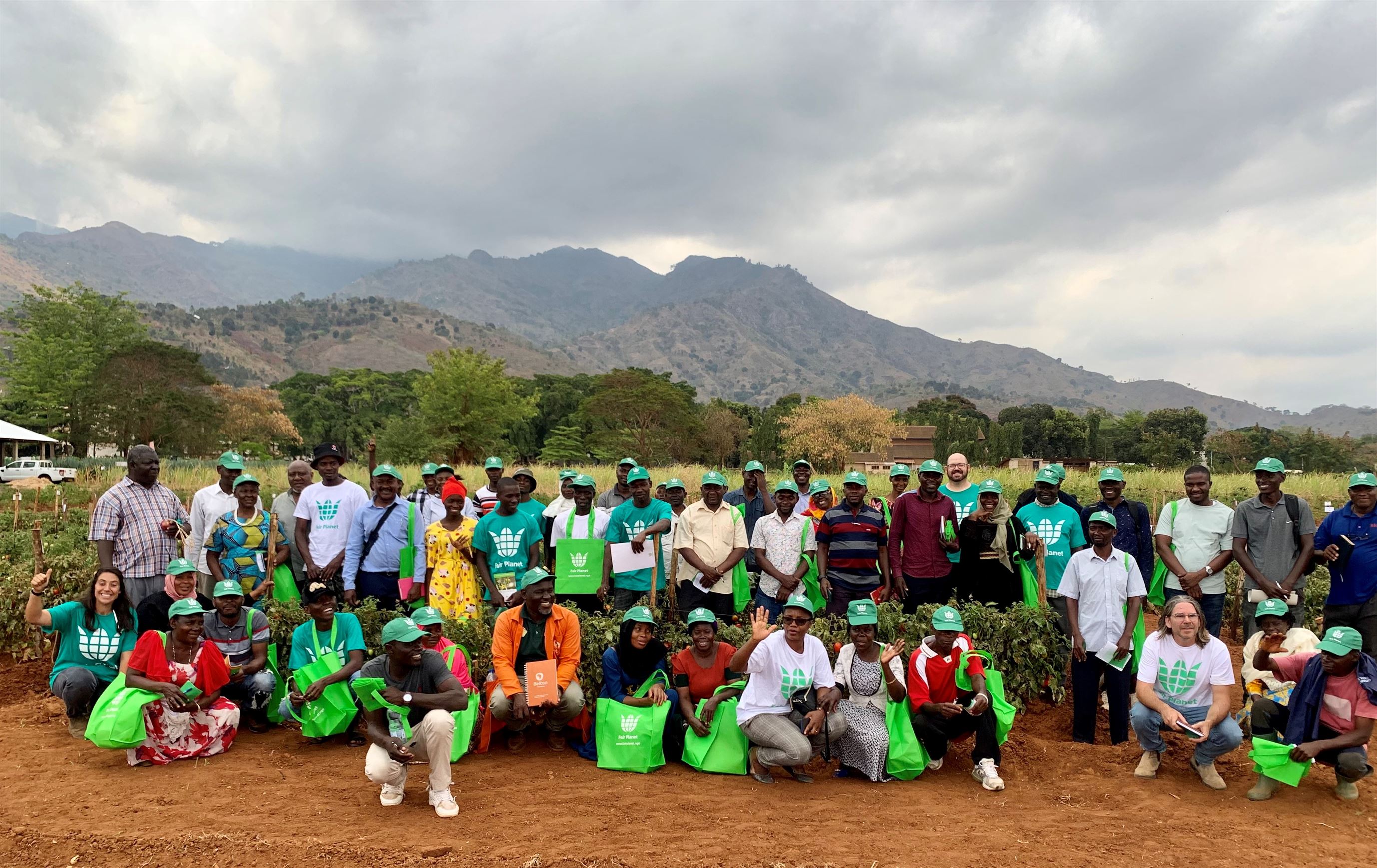Sokoine University of Agriculture (SUA) in collaboration with Fair Planet (a nonprofit organization aiming for the success of smallholder farmers in developing countries), recently hosted over 50 farmers from Mvomero and Morogoro Districts in Morogoro Region who grow vegetables in order to educate them on quality vegetable seed and various techniques and approaches that will assist them to increase production. The event took place on Tuesday, October 18, 2022, at the SUA Model Training Farm on the Edward Moringe Campus.

Vegetable farming experts from Fair Planet answering questions from farmers who participated in the training held at the Sokoine University of Agriculture (SUA)
Researcher and lecturer in the Department of Crop Science and Horticulture at SUA, Dr. Yasinta Nzogela, discussed the event, explaining that the project's goal is to try out various vegetable seed varieties to determine which ones can withstand the climate of the highlands (its tests are being done in the Mgeta area) and the lowlands (its tests are being done in SUA) and then conduct evaluations to determine whether or not they are suitable for farmers.
"We have different vegetable varieties from various seed companies in the world that we have worked through all the steps to get those seeds so that we can test them, so we inform the farmers of the type of seed that is resistant to insects and diseases including wilt which is very disturbing especially in vegetable crops in different areas of the country", said Dr. Nzogela.
Dr. Yasinta Nzogela
According to Mr. Gal Nir, the project coordinator, Fair Planet has been performing these types of tests in Tanzania since 2019. They evaluate the viability of seeds from a variety of companies before recommending them to farmers. After observing the results of the tests, they advise farmers to use a specific type of seed based on the location of their cultivation.
In addition, the project provides regular opportunities for farmers to visit their research areas in order to observe and learn about modern vegetable farming methods.
"Every season we bring into the field different vegetable seed varieties for trials and tests. Some of them are already registered and are on the market, and there are others that still have no names but only numbers. These are the ones that after being tested and proven to help farmers, the companies that produce them register them and bring them to market. This is so that farmers can get them and plant them in their fields", explained Gal.
Farmers from Morogoro and Mvomero districts smell different types of onion to match the aroma
Mayala Mabelele, a vegetable farmer from Kingolwira ward, explained how he had benefited from the training. He also urged the researchers from SUA to keep assisting them in overcoming the difficulties posed by mites in the growing of onions and "Kantangaze" (Tuta absoluta) in tomatoes so that they could forego the use of potentially harmful pesticides.

Mr. Mayala Mabelele
The Agriculture Officer of the Morogoro District Council, Zeno Assay, concluded by asking the trained farmers to inform their colleagues who did not participate in the program about the quality crop seeds and varieties to use for increased crop yields.
The Morogoro Region of Tanzania and the country of Ethiopia are both active sites for Fair Planet project work. In Morogoro Tanzania, training for farmers in Hembeti, Mgeta, Kingolwira, Kipera, and Mlali wards has already been carried out with remarkable success. They plan to move on to additional training facilities across the country.
Here, Farmers from Morogoro and Mvomero districts were listening to training on the best methods of cultivating onions

Farmers from Morogoro and Mvomero districts in a group photo with experts from SUA and Fair Planet
Story and Photo Credits: Amina Hezron - SUAMEDIA




